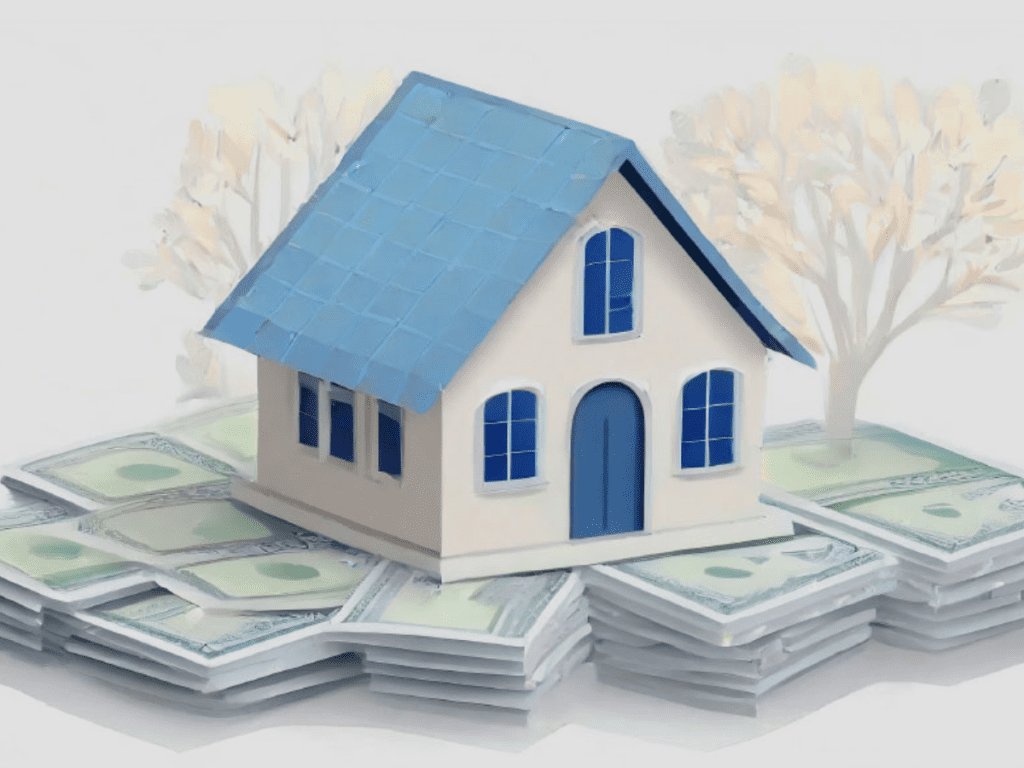Introduction
Buying a home is one of the biggest financial decisions many people will ever make. Whether you’re a first-time homebuyer or an experienced homeowner, understanding how to save money on your home loan is crucial for financial success. Saving on your mortgage can free up funds for other investments, lifestyle upgrades, or savings for retirement. Fortunately, there are several strategies that can help you reduce the cost of your home loan over its term. In this article, we’ll explore expert tips to help you save money and make smarter decisions when it comes to your home loan.
1. Shop Around for the Best Interest Rate
One of the most significant factors that affect the total cost of your home loan is the interest rate. A lower interest rate can save you thousands of dollars over the life of your loan. To ensure you get the best rate, it’s essential to shop around and compare mortgage lenders.
Start by looking at various lenders, including banks, credit unions, and online lenders. Make sure to consider both fixed and adjustable-rate mortgages (ARMs) to find the best option for your financial situation. Keep in mind that interest rates can fluctuate based on the economy, your credit score, and the loan type, so it’s worth doing thorough research before locking in a rate.
2. Improve Your Credit Score
Your credit score plays a significant role in determining the interest rate you’re offered. A higher credit score typically means a lower interest rate, which translates into lower monthly payments and less money spent on interest over the term of the loan.
To improve your credit score, make sure to pay your bills on time, reduce credit card debt, and check for any errors on your credit report. If your score is low, it might be worth delaying your home purchase until you can raise it, as this could lead to a significantly better loan rate. Even a small improvement in your credit score can result in substantial savings over time.
3. Choose a Shorter Loan Term
While a 30-year mortgage is the most common option, it’s not always the most economical. Choosing a shorter loan term, such as a 15-year mortgage, can help you save money in the long run.
With a 15-year loan, you’ll pay off your mortgage more quickly, which means you’ll pay less in interest overall. Although your monthly payments will be higher, the total interest paid over the life of the loan will be significantly lower. If you can afford the higher monthly payment, a shorter loan term can be a great way to save money.
4. Make Extra Payments
One of the simplest ways to save money on your home loan is by making extra payments. You can do this in several ways:
- Make biweekly payments: Instead of making monthly payments, make half of your monthly mortgage payment every two weeks. Over the course of the year, this results in one extra payment, which helps reduce your principal balance and the amount of interest you pay.
- Make lump-sum payments: If you receive a bonus or tax refund, consider using that extra money to pay down your mortgage. Even small lump-sum payments can add up over time and help reduce your loan balance faster.
- Round up your payments: If your monthly payment is $1,250, consider rounding it up to $1,300 or $1,400. The extra money you pay each month will go directly toward the principal, helping you pay off the loan faster.
Each extra payment reduces the loan principal, which in turn lowers the interest you pay. The faster you reduce your principal, the quicker you’ll save on your mortgage.
5. Refinance When Rates Drop
Mortgage refinancing allows you to replace your existing home loan with a new one, often with a better interest rate or terms. If interest rates drop significantly after you secure your home loan, refinancing can be an excellent way to save money.
Refinancing to a lower rate reduces your monthly payments and the total interest you’ll pay over the life of the loan. However, refinancing does come with costs, such as closing fees, so it’s essential to ensure that the long-term savings outweigh the upfront costs.
It’s worth noting that refinancing works best for homeowners who plan to stay in their home long enough to recoup the closing costs. If you anticipate moving in the near future, refinancing might not be the best option. However, if you plan on staying in your home for several years, refinancing can be a great way to save money on your mortgage.
6. Make a Larger Down Payment
One of the best ways to reduce the cost of your home loan is by making a larger down payment. When you put down more money upfront, you’ll borrow less and pay less interest over the life of the loan.
In many cases, a down payment of at least 20% can help you avoid paying private mortgage insurance (PMI), which can add a significant amount to your monthly payment. PMI is typically required if your down payment is less than 20%, and it can cost anywhere from 0.3% to 1.5% of the original loan amount per year.
By putting down a larger down payment, you reduce your loan size and avoid PMI, which can save you money both upfront and in the long run.
7. Avoid Paying for Unnecessary Fees
When applying for a home loan, it’s important to be aware of the various fees that lenders may charge. Some of these fees are necessary, while others can be avoided or negotiated.
Common fees include:
- Application fees: Some lenders charge an application fee to process your loan application. If the fee seems excessive, consider shopping around for other lenders who may offer more competitive fees.
- Origination fees: This fee covers the lender’s costs for processing the loan, but it can vary widely. You can often negotiate this fee or shop for a lender with a lower origination fee.
- Closing costs: These costs can add up quickly and include expenses like title insurance, appraisal fees, and attorney fees. While you can’t avoid all closing costs, you may be able to negotiate with the seller or shop for a lender with lower fees.
By carefully reviewing the fees and negotiating when possible, you can reduce the overall cost of your home loan.
8. Consider Government-Backed Loans
If you’re eligible, government-backed loans can offer significant savings. Programs like FHA, VA, and USDA loans are designed to help homebuyers who may not have large down payments or the highest credit scores.
- FHA loans: These loans are backed by the Federal Housing Administration and are available to first-time homebuyers or those with lower credit scores. They often require a lower down payment and have more lenient qualification requirements.
- VA loans: Available to military veterans and active-duty service members, VA loans offer competitive interest rates and require no down payment or private mortgage insurance.
- USDA loans: The U.S. Department of Agriculture offers loans for homes in rural and suburban areas. These loans typically require no down payment and offer low-interest rates.
If you qualify for any of these government-backed programs, they can be a great way to save money on your home loan.
9. Pay Attention to Loan Fees and Terms
Before signing on the dotted line, it’s crucial to carefully review the loan terms and fees. A seemingly low-interest rate may come with high fees or unfavorable terms that can increase the total cost of the loan.
Here are some key aspects to pay attention to:
- Prepayment penalties: Some loans have prepayment penalties, which charge you a fee if you pay off your mortgage early. These penalties can negate the savings from making extra payments or refinancing, so be sure to look for a loan with no prepayment penalty.
- Loan points: Some lenders offer the option to pay “points” to lower your interest rate. One point equals 1% of the loan amount, and paying points can reduce your interest rate. However, this comes with upfront costs, so make sure the savings in interest outweigh the initial expense.
By carefully reviewing loan terms and fees, you can avoid unexpected costs and make sure you’re getting the best deal possible.
10. Pay Attention to Your Home’s Value and Equity
Your home’s value and equity play a significant role in your mortgage costs. As you pay down your mortgage and your home increases in value, you build equity. This equity can be used to refinance or reduce your loan balance, helping you save money.
Additionally, if you have enough equity in your home, you may be able to request a lower interest rate when refinancing, further reducing your mortgage payments.
It’s important to regularly assess your home’s value and equity to determine when refinancing or making extra payments makes the most sense.
Conclusion
Saving money on your home loan requires a combination of careful planning, smart decision-making, and financial discipline. By shopping around for the best interest rate, improving your credit score, considering a shorter loan term, making extra payments, and refinancing when possible, you can reduce the overall cost of your mortgage. Additionally, making a larger down payment, avoiding unnecessary fees, and exploring government-backed loans can further help you save money. With these expert tips, you’ll be well on your way to paying off your mortgage faster and more affordably, giving you greater financial freedom and security.

